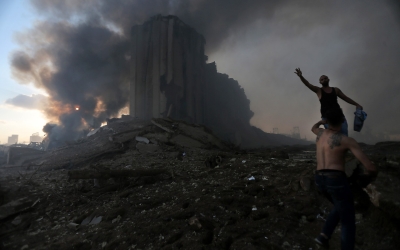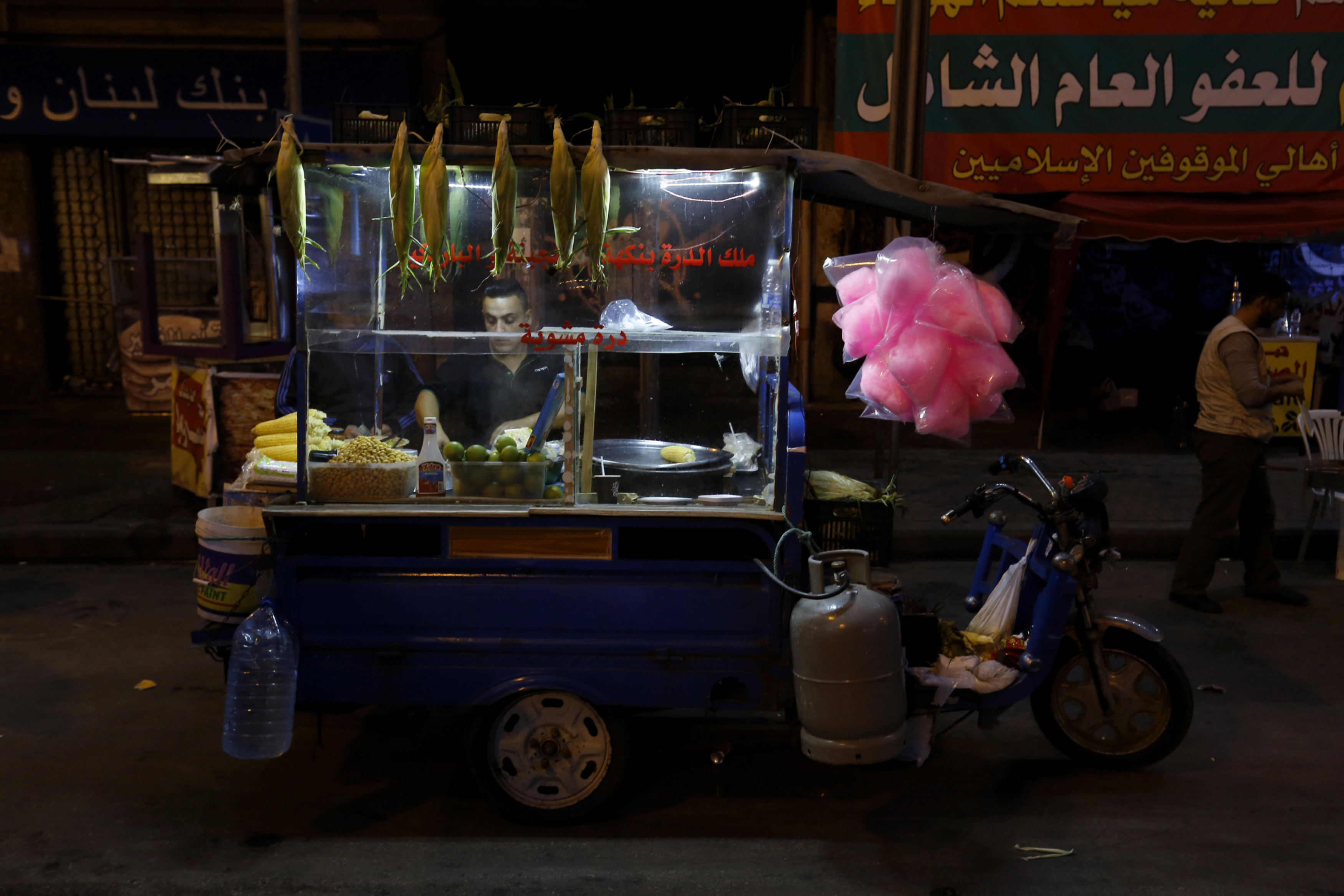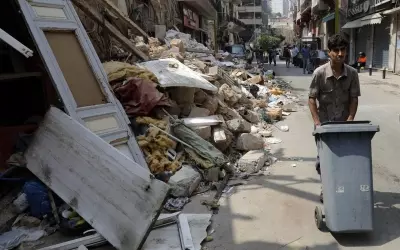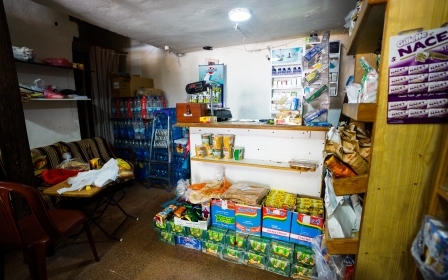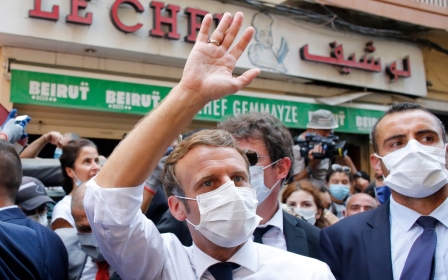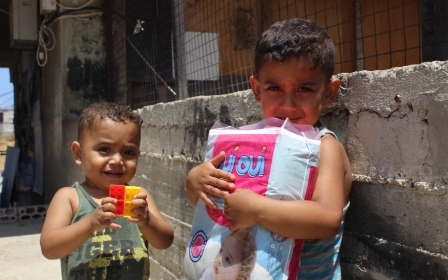'Death trip': Lebanese of Tripoli risk the Mediterranean to escape living hell
Living in Tripoli in north Lebanon as a child, the sea always provided a sense of hope for Khaled Daaboul. Today, the 42-year-old sees the sea as his only means of escape from the city where he earnestly tried and ultimately failed to maintain a decent life.
“Growing up, we were always poor, but we never felt the need to risk our lives to provide a better life. In 2020, risking my life and the lives of my wife and four kids became inevitable in order to provide a basic life, and not just a better one,” Daaboul told Middle East Eye by telephone.
On 9 September, the decision was taken: Daaboul joined his childhood friends in the Mina area of Tripoli and agreed that they have had enough and decided to head to Europe via the dangerous route of the Mediterranean sea.
“We all had our final destination planned depending on the relatives we have in different countries, but the Italian coast was our primary destination,” he said.
Instead of contacting an illegal smuggler, Daaboul and his friends decided to take matters into their own hands.
“We bought a boat, everyone contributed. Some of us sold our wives's gold, others sold their furniture, cars, and many of us had to borrow money,” he said.
“We sold whatever we can sell to raise the money to buy our escape.”
Talking about the preparations, Daaboul's words seem to give a deeper meaning than the mere selling of possessions. When asked if it felt like selling his old life in order to buy a new one, he said yes.
For nearly a year now, Lebanon has been facing its worst financial crises in decades. The crisis has impacted most Lebanese, but among the worst affected are the residents of Tripoli, the second largest city in Lebanon.
During a months-long anti-government uprising that started in October 2019 and spread throughout the country, the northern city became a focal point for protests.
But even before the economic collapse, Tripolitans have long suffered from poverty and neglect, despite the fact their city is home to Lebanon's wealthiest politicians.
In 2016, the World Bank categorised Tripoli as one of the poorest cities on the Mediterranean coast, with 80 percent of its 500,000 residents living with less than two dollars per day.
Nevertheless, at the time, Daaboul and many of his childhood friends were getting by, but by the end of last year, the means of survival have diminished, to almost nothing.
Daaboul was an accountant at a successful shipping firm, but with the gradual devaluation of the currency and the steep inflation in the import-dependent country, his salary was barely sufficient to provide for his family.
As the economic crisis became more severe early in 2020, he was laid off when the company underwent budget cuts, and the sea became Daaboul's only hope.
'The hell they just escaped'
In recent weeks, Lebanese and Cypriot authorities have reported several migrant boats, carrying both Syrians and Lebanese, attempting to leave behind Lebanon and its financial crunch, which has been exacerbated by the coronavirus pandemic, and a massive blast at the Beirut port last month.
Imad Tartousi, a well-known pastry chef in Tripoli, was among the 33 people, including Daaboul and his family, who tried to reach the Italian coast and failed.
Despite his cooking skills, affirmed by many Tripoli residents, Tartousi was forced to close down his shop as the prices of goods skyrocketed following the deteriorating currency.
'When I was a kid, bullets and shells would end lives in a second, today, in a time of peace, we die several times each day'
- Khaled Daaboul
“Tripoli was already a poor city, but people’s priorities changed after the crisis, and pastries became a luxury that not everyone can afford.”
Near the coast of neighbouring island Cyprus, the boat was met with a storm and the group was forced to send a distress call. The Cypriot coastguards came to their rescue and took them to Larnaca with the promise of facilitating their onward journey to Italy afterwards.
Ghassan Halimeh, a third-year medical student who was also amongst the group claimed, however, that the Cypriot authorities “tricked” them.
“They said they will take us to the Italian coast as planned, but when we boarded the Cypriot vessel, we realised that it was heading back to the Lebanese coast,” Halimeh said.
“Some of the men jumped off the vessel when they realised they are going back to the hell they just escaped,” before being returned to the boat.
The group is now quarantined in a medical facility in the Chouf neighbourhood in the Mount Lebanon area, awaiting their PCR tests to be finalised.
Halimeh said that given the chance, he would do it again because he does not have another choice.
“I can’t afford to pursue my studies, and I want to become a medical doctor. If my country does not care about me, I am sure other countries would not mind having more doctors to provide medical services for their citizens.”
'The luxury of time'
MEE interviewed several of those who took part in what they describe as the “death trip” and the general consensus was that the reasons they did not try to emigrate through legal means was the lack of enough money for paperwork fees.
“We don’t have the luxury of time to wait for the process,” one said.
Daaboul, who spent his entire life savings and his wife’s gold in order to co-purchase the escape boat, is now left with nothing.
“In the medical facility, they are feeding me and my four kids. I do not know how I am going to feed them after we are released,” he said.
Despite the well-known risks and an unknown future that would await them, most of the people in the group took the decision of leaving Tripoli based on the notion that nothing else could be worse than the conditions they are living in.
Daaboul recalled his memories of Tripoli during the Lebanese civil war, and reflected on the reasons why his parents did not attempt to leave the country at the time.
When asked how would he describe his own decision to leave, he said: “When I was a kid, bullets and shells would end lives in a second. Today, in a time of peace, we die several times each day.”
This article is available in French on Middle East Eye French edition.
Middle East Eye propose une couverture et une analyse indépendantes et incomparables du Moyen-Orient, de l’Afrique du Nord et d’autres régions du monde. Pour en savoir plus sur la reprise de ce contenu et les frais qui s’appliquent, veuillez remplir ce formulaire [en anglais]. Pour en savoir plus sur MEE, cliquez ici [en anglais].


